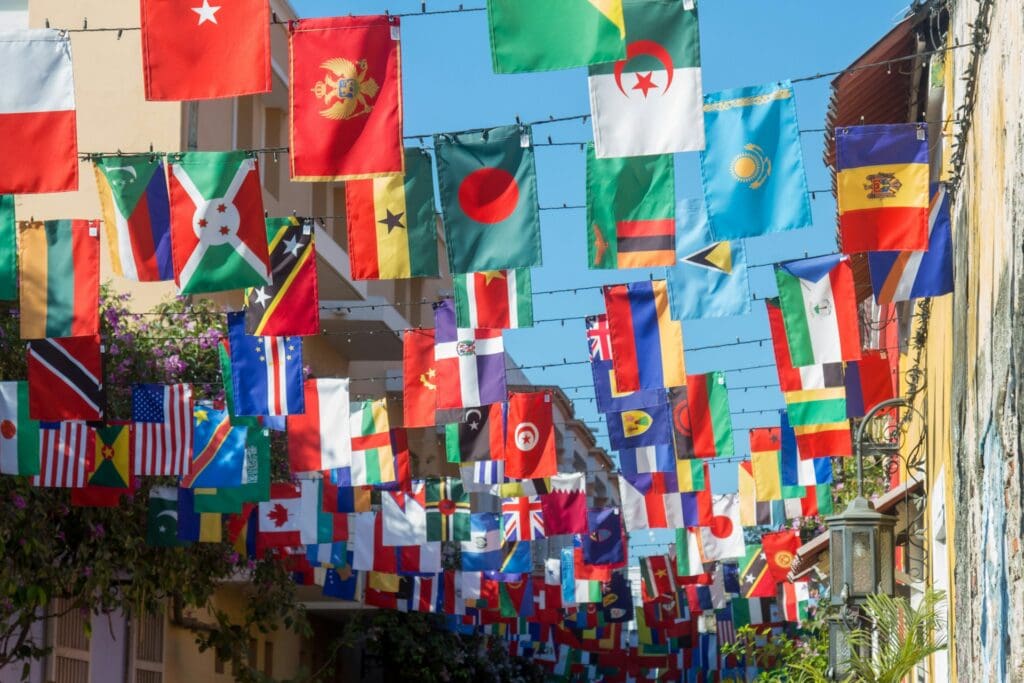What once mimicked brick-and-mortar casinos has evolved into a global digital race—one where subtlety, cultural relevance, and personalisation now set the pace. The old model of universal interfaces and blanket promotions no longer cuts it. What’s driving this shift? Localisation. But not just translating text or swapping currencies. Today’s platforms are embracing Localisation 2.0—a deeper approach that reshapes the entire experience to match regional tastes. It’s not just about access; it’s about making the product feel like it belongs.
Local Expectations Shape Digital Design
Across industries, there’s a growing recognition that one-size-fits-all no longer satisfies. Whether it’s a shopping app, news site, or entertainment platform, users expect experiences that reflect their language, habits, and cultural environment.
Scandinavian markets provide a clear example—digital services and casinos there are expected to offer crisp design, intuitive structure, and complete transparency. Online casinos that cater to Norwegian audiences, for instance, often adapt both their layout and tone to meet local expectations for clarity and consumer trust. Top platforms often spotlight generous welcome bonuses, tailored promotions, and fast, secure payouts. Mobile-friendly design and smooth navigation ensure a seamless experience across devices. Clear licensing and local payment options build trust. What stands out is how these features come together in a way that feels both familiar and reliable.
(Source: https://nyecasinonorge.net/ )
This demand for cultural alignment extends far beyond any single industry. From interface design to support services, users increasingly gravitate toward platforms that reflect their own norms and expectations. It’s this shift—from generic functionality to personal resonance—that defines the evolution toward deeper, lifestyle-driven localisation.
From Language to Lifestyle: Hyper-Localisation Takes Hold
Multilingual support was once enough. Now, players expect more—games that match local preferences, support teams that understand cultural nuance, and campaigns that feel tailored. Someone logging in from Tokyo shouldn’t feel like they’re using a platform built for Berlin.
Operators are catching on. Game lineups vary by region—bingo and card games resonate in Latin America, while Scandinavian users lean toward strategy-heavy slots. Even with shared infrastructure, smart brands are delivering custom experiences that feel familiar to each audience. That familiarity builds connection. When a platform reflects local culture, it creates more than engagement—it creates loyalty.
Culture Over Bonuses: The New Retention Strategy
As player acquisition grows costlier and global regulations tighten, retention matters more than ever. And the best hook isn’t a bigger bonus—it’s cultural relevance. Generic offers still work, but they pale next to tailored ones. A Diwali-themed event with festive visuals will grab far more attention in India than another round of free spins. Likewise, a Lunar New Year tournament means more to East Asian audiences than any standard promo could.
These campaigns do more than entertain—they show respect. That kind of cultural fluency builds trust, turning casual visitors into long-term players.
Smarter Tools, Deeper Localisation
Today’s tech is making this precision possible. AI and machine learning help personalise content based on regional behaviour, adapting everything from banners to game suggestions in real time. Geolocation tools now trigger the right language and promotions at login. Local payment systems—from mobile wallets to Pix in Brazil—are fully integrated, removing friction and meeting players where they are.
And design matters too. A minimalist interface might feel intuitive in Japan, while bolder, richer visuals tend to resonate more in the Middle East. These aren’t surface tweaks—they’re cultural touchpoints that shape how people interact with the platform itself.
Navigating Local Rules With Precision
Engagement isn’t the only concern. In a space as tightly regulated as iGaming, aligning with local laws is non-negotiable. Every region brings its own rulebook—what flies in one market might be a red flag in another. That’s why serious operators bake compliance into their localisation strategies from day one.
It’s not just about ticking boxes. Whether it’s meeting age checks, respecting advertising limits, handling user data, or securing local gaming licenses, the approach must be tailored to each jurisdiction. And often, that means teaming up with legal specialists on the ground. The payoff? Fewer risks, smoother operations, and a reputation that lasts.
Speaking Local, Acting Global
Big players are now mastering a dual identity. They run on unified systems, but wear different faces depending on where they show up. Betsson illustrates this well—operating under localised brands like StarCasino in Italy or Betsafe in Scandinavia, while maintaining global consistency behind the scenes.
This strategy works. A locally branded site feels more relatable—and often more trustworthy—to regional audiences. It also opens doors for tailored marketing, promotions that align with national holidays or cultural events, and support teams who speak the language—literally and figuratively. The result? A stronger bond between brand and player, built on cultural fluency rather than generic familiarity.
Localisation as a Long-Term Strategy
For operators hoping to establish enduring relevance, localisation cannot be treated as a one-time initiative. Markets evolve, cultures shift, and player expectations rise. Successful platforms will be those that treat cultural tuning as an ongoing process—one that involves listening, adapting, and investing continuously.
Crucially, it’s not about pandering. Players can tell the difference between token gestures and genuine localisation. Offering a culturally themed game without updating terms and conditions, payment options, or customer support won’t build trust. True localisation is comprehensive, strategic, and ever-evolving.
A More Personalised Future
The future of iGaming belongs to those who understand that winning in global markets requires more than presence—it demands relevance. Localisation 2.0 isn’t just a technical upgrade; it’s a shift in mindset. It calls for cultural sensitivity, technological adaptability, and a deep respect for regional diversity.
As competition sharpens and players become more discerning, casinos that invest in culturally tuned experiences will stand out—not just because they operate in a region, but because they feel like they belong there. In a world where choice is abundant, belonging is the edge.
The New Jersey Digest is a new jersey magazine that has chronicled daily life in the Garden State for over 10 years.
- Staffhttps://thedigestonline.com/author/thedigeststaff/
- Staffhttps://thedigestonline.com/author/thedigeststaff/
- Staffhttps://thedigestonline.com/author/thedigeststaff/
- Staffhttps://thedigestonline.com/author/thedigeststaff/


